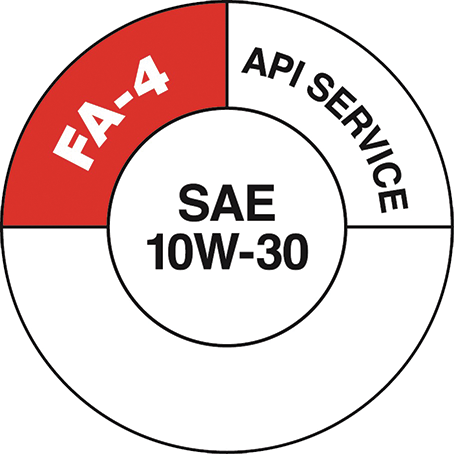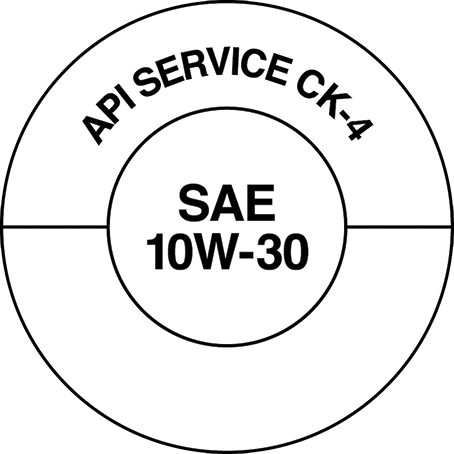Two years ago in this column, we told you the familiar CJ-4 diesel engine oil category was living on borrowed time as regulators continued to make demands on engine designers to improve fuel economy and reduce CO2 emissions. Today, that prediction is reality with a new CK-4 category, announced for a broad range of off-road equipment and light duty diesel powered pickup trucks.
Also emerging for the first time is the new FA-4 category — designed specifically for over-the-road diesels designed to meet 2017 model year greenhouse gas emission standards.
The American Petroleum Institute announced the new categories in May and refiners are scrambling to blend and label their new formulations for release sometime in December 2016. The new categories stem from a 2011 request from the Truck and Engine Manufacturer’s Assn. for a new category that meets the stringent political demands for cleaner exhaust streams. The request called for a 2016 date for licensing the new oil.
“That was a tall order,” says Dan Arcy, Shell Global Solutions OEM technical manager and chairman of the New Category Evaluation Team (NCET). “The request came at a time many of the engines and other test equipment used to examine and certify the current CJ-4 classification were obsolete or no longer existed. And, the OEMs wanted additional tests for the new oil, specifically for oxidation stability, scuffing protection, shear stability and aeration.”
Shell Introduces New
Stable of CK-4 Diesel Engine Oils
I also spoke recently with Chris Guerrero, Shell's global manager for diesel engine oils, about the updates that have been made to Shell's Rotella-T diesel engine oil product lineup.
Read more
Ultimately, the specific needs for the new oil classification meant two new oil categories would have to be released to meet the needs of the existing fleet of diesel engines in transportation and off-road use and the new engines coming on line in 2017.
“The group settled on the Mack-T13 test, a 360 hour marathon of engine operation at 1,500 rpm with 130 degree C oil temperature for oxidation stability performance,” Arcy explains. “For the aeration test, the new oils undergo the CAT Oil Aeration Test, a 50 hour run that examines air entrainment within the oil during engine operation,” he says.
CK-4 Oils for Ag
Specifically of immediate interest to farm equipment operators is the new CK-4 designation, which will supplant the long-running CJ-4 service category for diesel engine oil. Kevin Ferrick, API’s senior manager for engine oil licensing, says the CK-4 oils offer additional protection for today’s diesel engines and are expected to be recommended by engine manufacturers for non-road diesels and diesel-powered pickup trucks currently in use.
“The CK-4 oils will be backward-compatible with CJ-4, CI-4 with CI-4 PLUS, CI-4 and CH-4 oils,” he explains. “Operators of diesel engine trucks and equipment should check with their engine manufacturers before moving up to CK-4, but most operators will learn that CK-4 is the recommended oil for their engines.”
With continued pressure from regulators on both sides of the Atlantic to meet ever-more stringent emission standards, however, it’s conceivable the greenhouse gas emission levels met by 2017 model year over-the-road engines will become the next target put before OEM designers. It’s likely the recommended engine oils for those engines would require the traits found in the newer FA category lubricants.
The new service category, API FA-4, involves a distinctly different engine oil that is not interchangeable, nor backward compatible with the familiar, traditional “C” rated diesel engine oils.
New Service Symbols
“The API FA-4 oil category is for use in over-the-road engines designed to meet 2017 model year greenhouse gas emission standards,” Ferrick says. “API has introduced a new shaded FA-4 service symbol ‘donut,’ which is easily recognizable and distinguishes it from the CK-4 oils.”
Ferrick says FA-4 oils will be multi-viscosity products in 0W30, 5W30 and 10W30 designations, but he notes the “30” in that designation is different from the “30” found in conventional “C” designated oils and automotive motor oils.
He says the FA oils are generally “lighter” in viscosity because tests show lighter oils provide less resistance to rotating parts within an engine, and less resistance correlates to reduced fuel consumption, which results in fewer carbon emissions passing out of the exhaust system.
“While FA-4 oils have to meet the same requirements as CK-4 products, they are distinctly different and have specific uses that currently do not include agricultural or other off-road diesel-powered equipment,” he adds.
“Also, they are not recommended for use with fuel having greater than 15 ppm sulfur and should be used only when the engine manufacturer’s recommendations call for API FA-4 oil designations,” says Ferrick.

The new API FA-4 diesel engine oil Service Symbol Donut includes a shaded category segment to help distinguish the new oils from CK-4 and other “C” rated engine oils. The FA-4 products, expected to be available in December 2016, are distinctly different and not interchangeable with “C” series oils.

The new Service Symbol Donut label for the upcoming CK-4 category diesel engine oil follows the standard API donut format with no shading. CK-4 oils will be backward compatible with today’s popular CJ-4 rated oils, and several others in the “C” service category.






